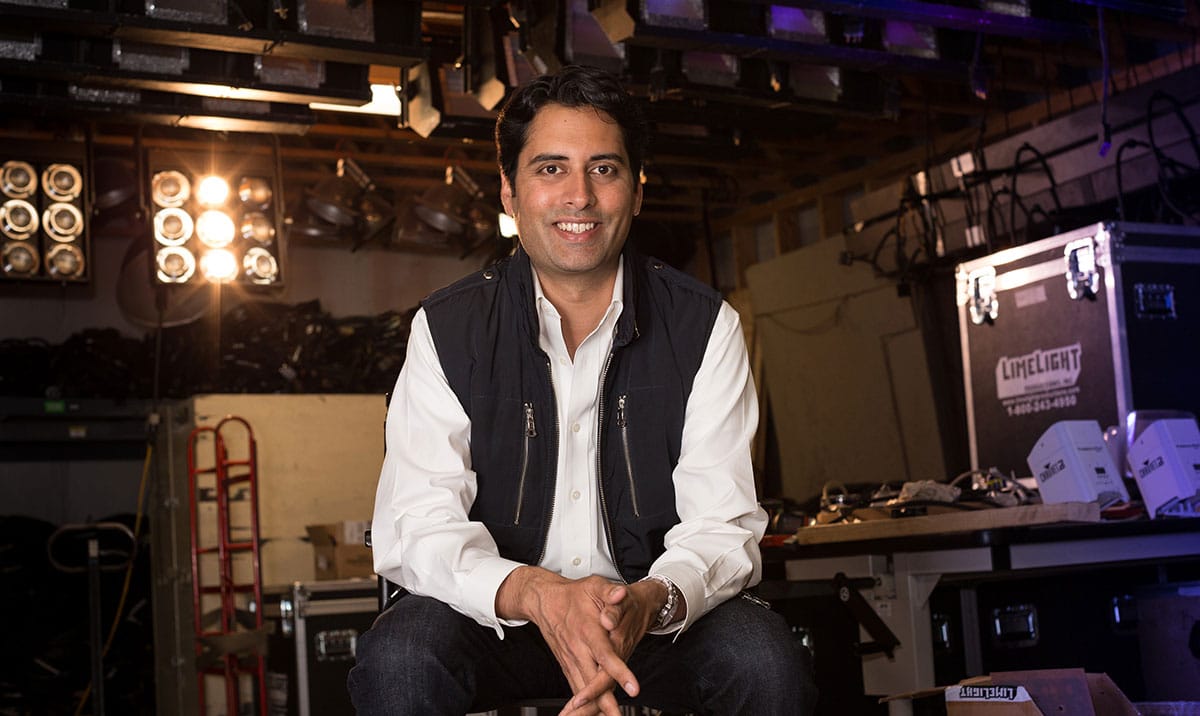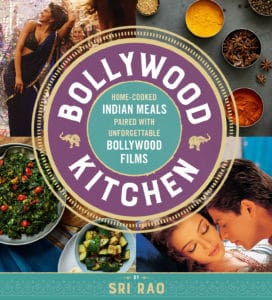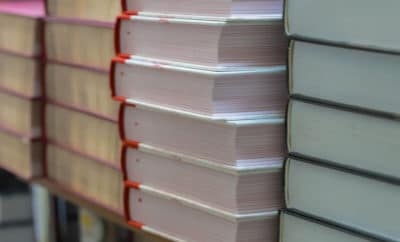Bollywood
Masala Mix: Sri Rao Stirs Up Indian Passions with Bollywood Kitchen

Sri Rao
New York-based scriptwriter Sri Rao brings together Indian food and Hindi films in his new book, Bollywood Kitchen.
It’s time for a double treat, the title of Sri Rao’s new book makes that clear enough. Bollywood Kitchen: Home-Cooked Indian Meals Paired With Unforgettable Bollywood Films brings together the two lifelong loves of most Indians – mom’s recipes, seasoned with the masala of Hindi movies.
The coffee table book comprises preparations based on some of Rao’s favorite dishes cooked by his mother, each coupled with a contemporary Bollywood film. While the recipes are adapted for the modern American kitchen, a dash of extra spice also comes from the behind-the-scenes revelations from films that Rao sprinkles through the chapters.
Bollywood Kitchen was not an easy compilation though. Rao spent considerable time to choose the movies to include in the book. He focused on some of the best contemporary Bollywood films from 1995 onwards, selecting a cross-section of films that would give the reader a good overview of the different genres in the industry, as also of the major actors and directors. “I have also made sure that all the films I discuss in my book are available to view online (e.g., Netflix, Youtube, iTunes) with good subtitles,” he tells Little India.
The delicacies with which the films are paired are all “Indian-American,” Rao says. He streamlined them so that they can be made primarily with ingredients available in U.S. supermarkets. So, you have Brussels sprouts cooked with peanuts, masala-crusted salmon, and hamburger with Indian spices (which Rao calls a Bollyburger). And a preparation for rajma using mustard seeds.
 “The food in my book isn’t particularly South Indian or North Indian – it’s Indian-American,” Rao emphasizes. “For second-generation Indians like me who were born in America, we are far less concerned about regional differences compared to our parents’ generation.”
“The food in my book isn’t particularly South Indian or North Indian – it’s Indian-American,” Rao emphasizes. “For second-generation Indians like me who were born in America, we are far less concerned about regional differences compared to our parents’ generation.”
The 40-something writer also belongs to a generation that was brought up by parents who saw Bollywood as one of the few means available to replay Indian life. Rao, born and raised in Pennsylvania to parents who migrated from Andhra Pradesh to the United States in the 1960s, could not shake off the effect that Hindi films had on him even after graduating from the Wharton School.
After making a mark as a television scriptwriter in America, Rao found himself gravitating toward Bollywood. He produced the Kabir Khan-directed John Abraham-starrer New York in 2009, followed by Shahid Kapoor’s Badmaash Company for Yash Raj Films a year later. With Baar Baar Dekho, the 2016 film featuring Sidharth Malhotra and Katrina Kaif, the New York-based writer was hailed as the first American to write a mainstream Bollywood film.
While Rao’s foray into Indian films was talked about as a milestone in the entertainment industries of both countries, especially since it meant crossing hurdles for Indian producers like negotiating with the Writers Guild of America, the movies themselves did not create a storm. Badmaash Company and Bar Bar Dekho received some scathing comments too. Rao remains unfazed by the lack of commercial success in Bollywood.
“One of the hardest things about being a film screenwriter – whether it’s in Hollywood or Bollywood – is that, as the writer, you have very little control over how the film turns out,” he says. “It’s particularly painful because you are the person who created these characters, this story, this entire world – sitting all by yourself in front of the computer – but then you have to hand over your ‘baby’ to other people and step out of the way. Sometimes things go the way you envisioned… and other times, not so much.”
He is already looking ahead. Rao is now busy writing the pilot script of his upcoming project for ABC, based on the life of former Bollywood star Madhuri Dixit, and featuring Baywatch and Quantico actress Priyanka Chopra. “It’s an idea I have had for a few years,” reveals Rao, adding that he always thought it was fascinating – and unusual – how Dixit quit Bollywood at the height of her career and moved to suburban Denver where no one in her neighborhood realized they were living next door to a superstar with millions of fans.
Rao is also an advocate of meditation, yoga, vegetarian food and holistic medicine, philosophies that he learned from his parents and grandparents. “Many second-generation immigrants like me are excited to see aspects of our culture – like yoga and meditation – enter the mainstream here in America,” he says. “Now it’s important to us that these concepts get translated in a respectful, authentic way – so that they’re not misappropriated or stripped of their cultural context.”
1 Comment
You must be logged in to post a comment Login




Pingback: My Homepage